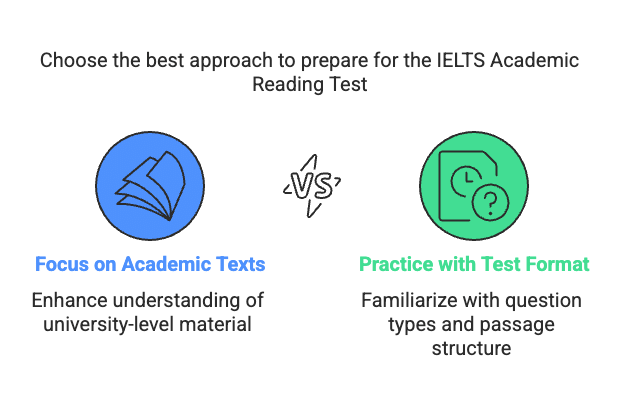The IELTS Academic Reading Test is one of the most important sections of the IELTS exam, especially if you’re applying to study at a university or college abroad. Below are the most frequently asked questions that will help you understand the format, scoring, and how to prepare effectively.
1. What is the IELTS Academic Reading Test?
The Academic Reading Test assesses your ability to read and understand academic texts. You’ll answer 40 questions based on three long reading passages taken from books, journals, magazines, and newspapers. These texts are similar to what you’d encounter in a university setting.

2. How long is the Reading Test?
The test lasts 60 minutes. You must manage your time carefully, as there is no extra time to transfer answers to the answer sheet if you're taking the paper-based test.
3. How many passages are there in the Academic Reading Test?
There are three reading passages, and each one gets progressively more challenging. They may be descriptive, analytical, or argumentative in nature.
4. What types of questions are asked?
Common question types include:
Multiple choice
Matching headings
Sentence or summary completion
True/False/Not Given
Yes/No/Not Given
Diagram label completion
Short-answer questions
Matching features or sentence endings
You may get a variety of 10–11 different question types in one test.
5. Can I write on the question paper?
Yes, if you’re taking the paper-based test, you can make notes, underline, or circle key words on the question paper. However, only answers written on the answer sheet will be marked.
6. Is spelling important in the Reading test?
Yes. Spelling, grammar, and word form must be correct. If an answer is misspelled or in the wrong form, it will be marked incorrect, even if the meaning is clear.
7. Do I lose marks for wrong answers?
No. There is no negative marking in the IELTS Reading Test. You should always attempt every question, even if you are unsure of the answer.
8. How is the Academic Reading test different from the General Training version?
The Academic Reading Test features more complex and academic-level texts, whereas the General Training version uses texts from advertisements, instructions, notices, or workplace documents. The question types are similar, but the difficulty level is higher in Academic.
9. How is the Reading score calculated?
You are awarded one mark for each correct answer (out of 40). Your raw score is then converted to a band score from 0 to 9. The conversion may vary slightly from test to test.
Example:
30 correct answers ≈ Band 7
35 correct answers ≈ Band 8
10. How can I prepare effectively for the Reading Test?
Practice different question types to get comfortable with the format
Improve your skimming and scanning skills to locate information quickly
Expand your academic vocabulary
Practice reading articles from journals, magazines, and newspapers
Time yourself to get used to completing tasks within 60 minutes
Would you like a companion document with question-type explanations or a mini practice set with sample questions and answer strategies? I can prepare those as well!






















